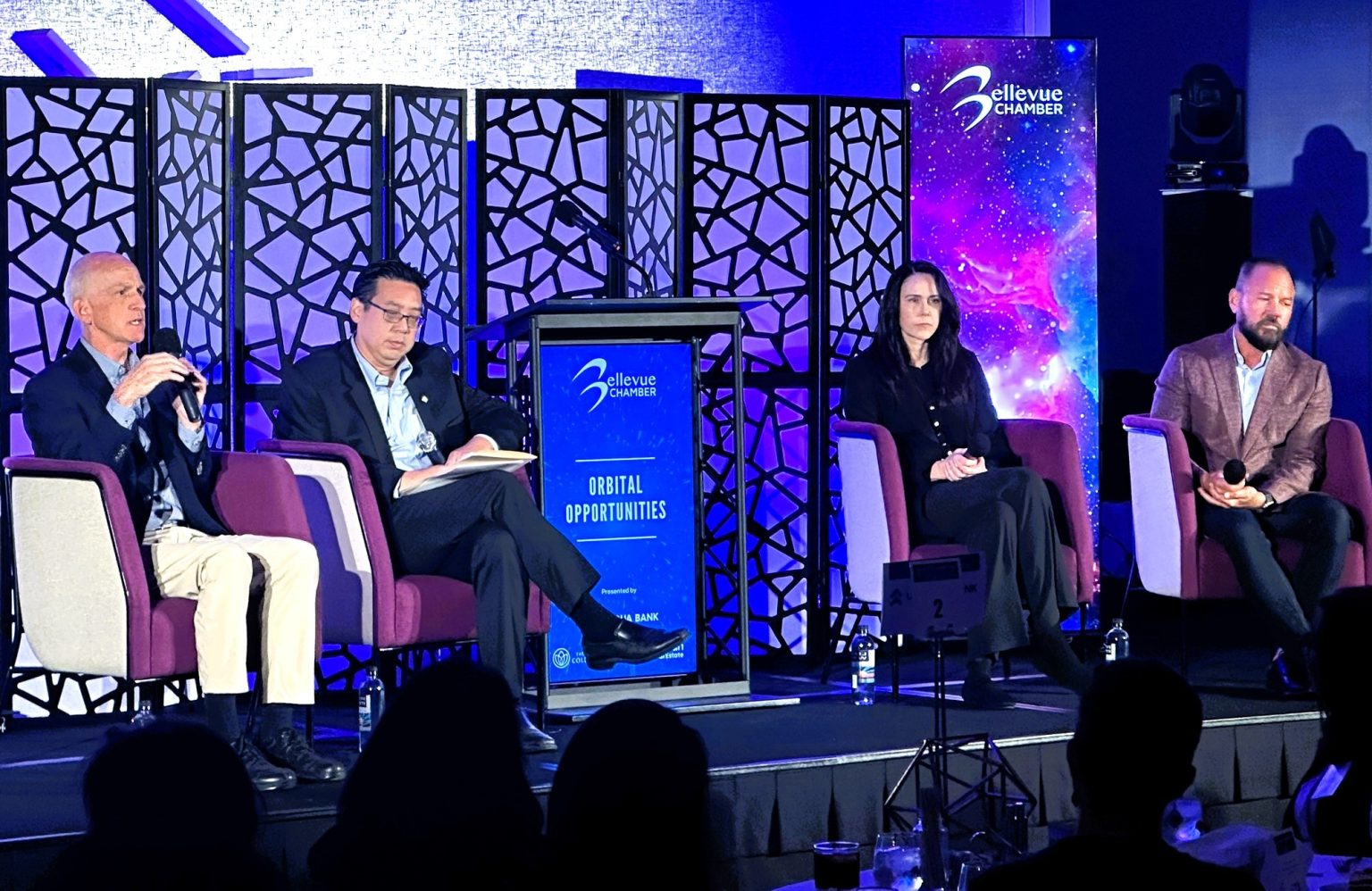The Seattle area’s space industry was the focus of a panel discussion at a Bellevue Chamber luncheon, featuring U.S. Rep. Adam Smith, Washington State Department of Commerce director Mike Fong, Kelly Maloney from Space Northwest, and Brian Huseman from Amazon. Smith emphasized the importance of addressing housing affordability for industry workers beyond just work-related needs. The industry is growing in suburbs from Bellevue to Redmond and Kirkland to the north, and to Kent and Tukwila in the south, contributing $4.6 billion in economic activity and 13,000 jobs to the state’s commercial space ventures.
Companies like Blue Origin, Amazon’s Project Kuiper, SpaceX, Aerojet Rocketdyne, and LeoStella have a significant presence in the Seattle area, employing thousands of workers and putting pressure on the region’s housing market. The median selling price for a home in Bellevue exceeds $1.5 million, making it challenging for workers to afford housing. Smith emphasized the need for better housing affordability solutions and a focus on improving the education system, particularly in STEM fields, to meet the workforce demands of the industry.
While efforts have been made to address the housing affordability crisis, more actions are needed to change the cost structure of building housing and make it more accessible for workers in the industry. Maloney stressed the importance of investing in programs for underserved and marginalized communities to ensure a diverse and skilled workforce for the future. Despite the challenges, there has been success in workforce development efforts, with collaboration between businesses, unions, colleges, and high schools to train the next generation of workers.
Amazon’s Project Kuiper has partnered with Lake Washington Institute of Technology to create a certificate program for satellite technicians, showcasing the industry’s commitment to developing new talent. Maloney suggested establishing a specific incubator for the space industry in Washington to foster innovation and support startups. There are already existing accelerators like Starburst and Techstars Space Accelerator, with plans for more initiatives to support the growing space industry in the region.
Fong highlighted the region’s long-standing leadership in the tech industry and emphasized the unique DNA of the Pacific Northwest that enables it to have a lasting impact on the space industry. By leveraging partnerships with government and investing in workforce development and education programs, Washington’s space industry can continue to thrive and contribute to the region’s economic growth. The panel discussion shed light on the challenges and opportunities of the Seattle area’s space industry and the collaborative efforts needed to ensure its continued success in the future.


